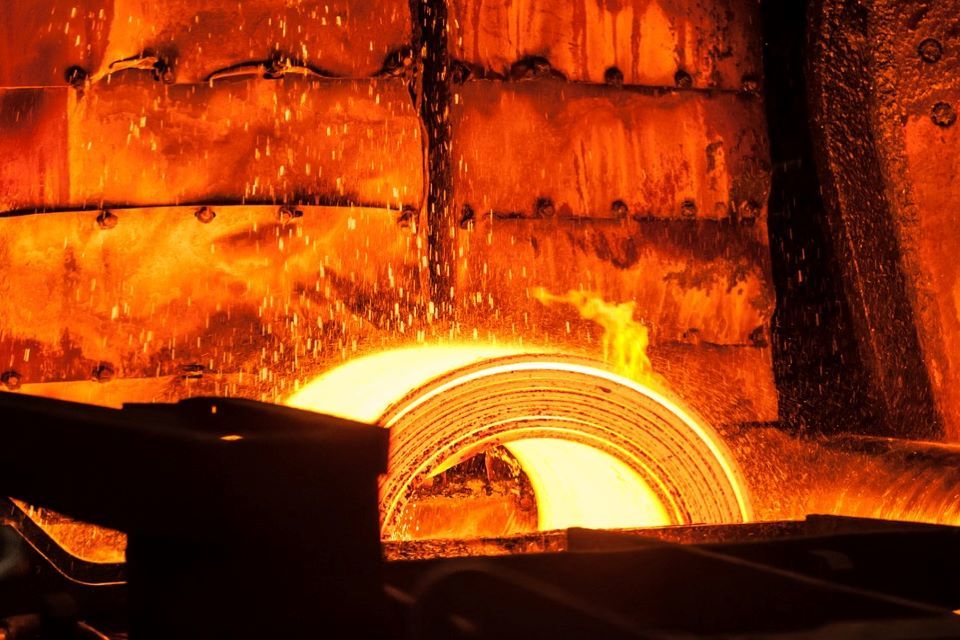
TRA reviews measures on two steel products and suspension for Ukraine
Published By GOV.UK [English], Fri, Jun 24, 2022 6:51 AM
The Trade Remedies Authority (TRA) has today (Friday 24 June) initiated a transition review into anti-dumping measures on Hot Rolled Flat and Coiled (HRFC) Steel from Russia, Ukraine, Brazil and Iran. It has also opened a transition review into anti-subsidy measures on imports of Stainless Steel bars and rods from India.
These measures are among those that the UK inherited from the EU system – the TRA is reviewing them to make sure they are still suitable for the UK’s needs.
HRFC Steel is used primarily in the mechanical and electrical engineering, construction and automobile sectors.
The measures on Stainless Steel bars and rods cover those used across various industries, including the automotive, aerospace and food processing industries. These products can be easily cut and machined and are often used in the manufacture of tools, machine parts and components.
The period of investigation for both transition reviews will be 1 April 2021 – 31 March 2022 while the injury period will be 1 April 2018 – 31 March 2022.
Suspension investigation
In addition to today’s initiation of the transition reviews, the TRA has also opened a suspension investigation into the anti-dumping measures on HRFC Steel from Ukraine.
The TRA has assessed information provided to it by the government of Ukraine against the following three conditions:
Whether there has been a change to market conditions;
Whether the effect of this change is temporary;
The effect of this change on UK industry.
The TRA has made an initial assessment that these three conditions have been met following Russia’s invasion of Ukraine earlier this year and will now investigate this further.
TRA Chief Executive Oliver Griffiths said:
“This week we have launched two transition reviews into measures on steel products, spanning imports from India, Russia, Ukraine, Brazil and Iran.
“Alongside this, following a request from the government of Ukraine we will investigate whether a suspension of measures on certain Ukrainian steel products is justified because of changed market conditions after the Russian invasion.”
View further information on the TRA’s current investigations, including transition reviews like this one.
Businesses that may be affected by the investigations (such as importers or exporters of the products or UK producers of similar products) can contribute to the investigation by registering on the TRA’s online case platform. They can also stay up to date with developments in the case, which will be posted on the TRA’s public file.
Note to editors:
The Trade Remedies Authority is the UK body that investigates whether new trade remedy measures are needed to counter unfair import practices and unforeseen surges of imports.
View more on how we investigate whether to suspend a trade remedy measure.
Anti-dumping remedies address imported goods which are being dumped in the UK at prices below what they would be sold for in their home country.
Anti-subsidy measures, also known as countervailing measures, are one of three types of trade remedies that are allowed under World Trade Organisation (WTO) rules. They are put in place to offset imports being sold at unfair prices due to government subsidies in their country of origin.
The TRA may make a suspension recommendation if it is satisfied it is appropriate to do so, and on the grounds that market conditions have temporarily changed such that injury would be unlikely to resume as a result of suspending the measure. The suspension of the measure would be short-term and a maximum of nine months in duration. Before making its recommendation, the TRA must give the UK industry opportunity to comment on the proposed suspension.
Trade remedy investigations were carried out by the EU Commission on the UK’s behalf until the UK left the EU. Forty-four EU trade remedy measures of interest to UK producers were carried across into UK law when the UK left the EU and the TRA is currently reviewing each one to check if it is suitable for UK needs.
Period of Investigation – when we are investigating dumping and subsidy cases, we will use a period of investigation of around a year. We will aim for the end point to be as close as possible to the date of initiation. However, we will decide this on a case-by-case basis.
Period of injury – the injury period will usually cover the period of investigation and normally the 36 months immediately before this (i.e. 48 months in total). TRA investigators look at evidence of injury over a longer period than the general period of investigation so that they can assess trends and other factors in more detail than if they looked at a single year.
Press release distributed by Media Pigeon on behalf of GOV.UK, on Jun 24, 2022. For more information subscribe and follow